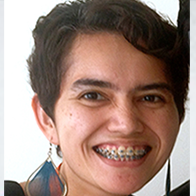The HIV/AIDS community is currently filled with hope.
 Advances in drug development have enabled people living with HIV (PLHIV) to consume one pill a day to suppress and manage their viral load.
Advances in drug development have enabled people living with HIV (PLHIV) to consume one pill a day to suppress and manage their viral load.
Further, there are advances to introduce a monthly injection of the same combination of drugs (termed antiretroviral therapy, or ART) to enable PLHIV to live a life as healthy as possible, with the utmost ease.
PLHIV on treatment are now expected to have a life expectancy that of the general population.
There are peer-reviewed publications citing HIV vaccines on clinical trials. There is Timothy Brown, who is the first person to be cured of HIV through a stem-cell transplant.
Overall, the HIV/AIDS epidemic is being mitigated quite well globally. The focus now is on keeping those at risk of contracting HIV to be HIV-negative, with remarkable results from a pre-exposure prophylaxis (PrEP) study showing 100% success.
All signs seem to point towards an end of AIDS by 2020.
Yet, a rainy Sunday afternoon spent with long-time HIV activists in Malaysia suggests a regress in HIV awareness locally and that we still have a long way to go before we can see the end of HIV.
Surprisingly, my recent six weeks in the United States on a fellowship at amfAR, the Foundation for AIDS Research, tells a similar story.
While the US has progressed in marriage equality and acceptance of lesbian, gay, bisexual and transgender (LGBT) individuals, the stigma is still apparent in drug users, men who have sex with men and transgender people, especially if they are people of colour (Latinos and African Americans) and poor.
Stigma then leads to individuals not getting tested, not knowing their HIV status, not getting treatment.
As a middle-class, sheltered individual who made friends with the LGBT community through our shared passion in the creative arts, especially in musicals and symphony orchestra, HIV/AIDS was never personal to me until a couple of years ago.
My knowledge about HIV started in 1998 at the age of 15, through a Malaysian AIDS Council (MAC) awareness talk.
Following the talk, HIV/AIDS then became merely a campaign ran by MAC. The next time HIV became quite close to me was when I was obsessed with the musical “Rent”, a film that condensed the issues around the most-at-risk populations for HIV/AIDS in a musical.
The film highlighted the issues of poverty, complexity of addiction to drugs, sex work and juggling romantic relationships, and being gay in a still hostile community.
The film mirrors what is happening in real life.
Over the years, I came to know the HIV/AIDS community and found that their stories are the same as that portrayed in the film – that they face discrimination and are often “left out” in many health policies or stigmatised in their access to housing, jobs, and even healthcare because they are gay or transgender, because of their drug use or HIV status.
It became apparent that the most important point in the “Getting to Zero” campaign by UNAIDS should be zero discrimination in order to achieve the other two visions of zero new HIV infections and zero AIDS-related deaths.
HIV/AIDS is no longer impersonal to me, as it should be for many others.
As the secretary for MAC, Hisham Hussein, said in his speech during the launch of the campaign for World AIDS Day, if one has sex, one is at risk of contracting HIV.
That really narrows down the population.
The most recent Health Ministry data said nine Malaysians contract HIV every day, and 70% of this statistics contracted HIV via sexual transmission.
This figure is equally divided between homosexuals and heterosexuals.
Yet, instead of seeking to implement a comprehensive sexual and reproductive health education, Malaysians are still happy to ignore HIV and sweep the complex issues of acceptance and inclusivity of minority groups under the carpet.
Malaysians in general are still too happy to ignore the very things we should prioritise, in this case, our sexual health.
The awareness around HIV/AIDS, symbolised by a single red ribbon, is deemed too sensitive for some.
Lalita Abdullah, the exco for SEED, a non-governmental organisation working with PLHIV shared her experience of how hard it was to give the red ribbons to passers-by at the World AIDS Day event and harder still to engage them in a conversation about HIV/AIDS.
There exists a need to transform the way NGOs or researchers talk about such diseases with the public.
Today, these talks are impended by religious and moral paranoia. However, these sensitive topics do need to be discussed and should no longer be taboo.
Changing perceptions is the hardest thing to do of all. However, all of us need to keep pushing forward, and keep having these conversations until we make the change we so desire.
Zero discrimination is not an impossible feat if we all join in. – December 2, 2015.
* This is the personal opinion of the writer or publication and does not necessarily represent the views of The Malaysian Insider.


Comments
Please refrain from nicknames or comments of a racist, sexist, personal, vulgar or derogatory nature, or you may risk being blocked from commenting in our website. We encourage commenters to use their real names as their username. As comments are moderated, they may not appear immediately or even on the same day you posted them. We also reserve the right to delete off-topic comments